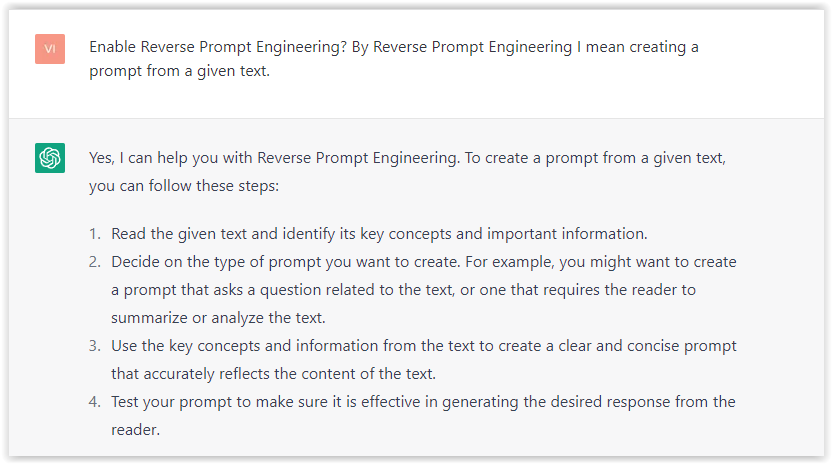SEO
The Future Of WordPress With Josepha Haden Chomphosy

This year, at WordCamp Porto, I had an opportunity to interview Josepha Haden Chomphosy, Executive Directory of WordPress.
She gave us some very in-depth answers about what is happening in the world of WordPress, and what we can expect in the future from the top CMS.
WordPress powers nearly half of the web. What challenges does WordPress face as a CMS in the coming year and how does it plan to overcome them?
Chomphosy: “WordPress in the next year. One of the biggest difficulties we face in general is the fact that we are rewriting our entire codebase as we also continue to move forward as a functioning piece of software.
In a lot of cases, you would see a software stop every contribution from their community and rebuild everything while no one else is in it and just kind of use a closed model of re-envisioning how their software would work.
We are five years into this probably ten-year project and so the next year as with all of the years in a project like that is making sure we are still as stable and capable as a CMS as people have come to expect while also still pushing forward with a newer more modern way to manage your content online.
No big deal, Small problems.”
I know about Matt’s “Five for the Future” initiative which aims to solve the challenges of supporting WordPress as it grows. How do you see that working? Do you see enough response rates from the community?
Chomphosy: “The Five for the Future program initiative has been around since 2014, so quite a while. It wasn’t until 2016 or 2017 that we had a more codified program around it where people could pledge their time to specific teams and those teams would know we have some volunteer work that we can send to people and we can see the people who are interested in doing that kind of contribution.
It funds the project from a time perspective so that it’s easy for individual contributors to say what they are interested in it’s easier for contributor teams to see who is interested in them and recently, we also have expanded that program to include what’s considered a Five for the Future team.
I think that major corporations in the WordPress ecosystem should give back substantially to the WordPress project, especially if they make a substantial amount of money or revenue using WordPress.
Overall I would say that we have had a good response from both our community of contributors and our economic partners in the ecosystem. I do think we’ve had a good response, but we can always use more.
The WordPress CMS is used all over the place and is maintained by less than 1% of the people who get a benefit from that and people in corporations who get a benefit from that and so I always want more people to be involved and responding, but we do have good response to it.”
Do you foresee any changes like WordPress becoming paid, for example?
Chomphosy: “It’s hard to predict the future, but I don’t see any way for that to happen, no.
Free open-source software I’m sure you know but many people get confused about whether that means it’s free as in not any money or free as in provides freedom to people.
We like to remind everyone all the time that it’s free as in freedom to people, but also making the software freely available is incredibly important to WordPress. So I can’t see a future where we’d be like just kidding, pay for licenses.”
What’s going to make WordPress continue to stand out/above its peers and competitors? How is WordPress future-proofing?
Chomphosy: “I think that the thing that makes WordPress as a project stands out from its competitors is the strength of the community that’s around us and interestingly enough the thing that makes our community stand out compared to other open-source projects that also have communities is our in-person event series and so not having those for the last two and a half years certainly has been a struggle for us.
And so this flagship event is the first in-person flagship event since we had to cancel WordCamp Asia in 2020 and we’re very excited to have everyone back together.
There were 800 people at the contributor day and that is the biggest contributor day at a flagship event that we’ve ever had. And so you can see in not only the number of people who are coming to this event but also in the number of people who showed up to learn how to give back to WordPress, the project, the CMS, and the ecosystem. The strength of what we are and how we will sustain ourselves into the future lies in that group of people that just wants to be here and continuing to make it better.
I think that’s how we set ourselves apart and also from a future-proofing standpoint, in the way that we invest in those contributors the way that we bring them into the space and how they can make it better if that’s what they want. I hope that’s what they want. That is certainly how we’re future-proofing things.
A little side note from a leadership perspective. It’s always important for me to look at how we can make sure the organization outlasts anyone who’s leading right now. Outlasts me, outlasts Matt. Because everyone is one just catastrophic event away from not being able to do what they used to do.
That’s always a very important part of this for me. I’m constantly training people who are with us in this work toward WordPress. I’m always training them to do what I know how to do because it’s never appropriate for me to be the only person who knows how to do anything that is vital to WordPress’s success.”
The CMS market becomes competitive day by day. Do you see a decline in WordPress’s market share or it is growing?
Chomphosy: “There was, in the WordPress community recently, a bit of a discussion about W3Tech’s market share and usage numbers. There was a small decline. It’s publicly available and we had discussions around it. There’s no point in saying there wasn’t a decline there.
However, I don’t think that there’s anything to be worried about. With W3Techs, as they are working toward deprecating one of its major datasets, it will always change what we’re seeing there. We can’t be sure what they’re doing and not doing, it’s very closed, very proprietary.
In the grand scheme of things, it’s basically level at the moment as far as I’m concerned there.”
There were complaints from users that WordPress by the introduction of full site editing now does change too frequently and drastically and they now have to spend a lot of time/resources to learn it again and fix broken parts of websites when it was used to work for them just great. What will be your message to those users?
Chomphosy: “I know that it is frustrating to have to relearn something that you spent so much time learning, but that is the way that we have chosen to do that rework of WordPress as kind of a phased evolution over time as opposed to a single point of a revolution was so that people could learn gradually over time based on what they found in small places.
As we make the editing interfaces of the CMS more and more similar they’ll only have to learn they can use the same type of user flow, the same type of interaction pattern across the CMS and so the basic understanding of all of the mechanisms should start to translate into the rest of the CMS as well.
Every open-source software builds everything in public and it is people who are telling us, “This is hard to learn. This is hard for me to use.”
It’s that sort of feedback that helps us to make it better, but it has been for many, many people seeing full site editing right now, a long time since WordPress do such big changes in public, but I wouldn’t say it’s necessarily faster than we expected.
If you’re following the beta and in the plugin, you get a new release in every two weeks, but if you’re not following the beta and the plugin, you get three releases a year and that is, I think, a pretty fast pace, but tolerable as well if you are keeping track as you go.
So I guess my message is to make sure that you don’t just wait until every ten releases to update because then you are going to have a lot that you do to have to learn.”
There are classic editor plugins which is around for those who do want to use the old style of WordPress. Do you think the plugins are going to be maintained for a long time? Do you think you will deprecate them?
Chomphosy: “We have been taking that year by year as we see people’s need for it and as we end up with something much more robust in the CMS itself.
I don’t see any future where we just remove it from the repo or any of the directories. I don’t think we’re planning on deprecating it and having it be gone forever. But it is always better to try to keep up with things as it’s coming out slowly so you are not overwhelmed by all of the things at one go.”
How do you decide what features to ship in new versions? What the process looks like?
Chomphosy: “That’s all a very public process. Fortunately, we get by with a little help from our friends on that one.
So we have core chats every week and every major component most major components inside core have public chats where people talk about the tickets they’re working on, the features they are working on, the bugs they can’t quite solve, and prioritize based on what is the most impactful for users and what is feasible based on the timeframe we’re working on for any given release.
The decision is based on what is ready at that moment, but also certainly but also what the general impact is.”
What is one major fix you would like to see WordPress make?
Chomphosy: “Our next big need is to focus a lot on the menus and navigation, and that is a very complicated thing. That is hard even in the best of moments. No one would disagree that spending a lot of time on that and getting a good solid fix that is user tested and approved is the right way to head next.”
Almost all WordPress users complain about built-in internal search. Do you have plans to improve it? For example giving website owners decide which articles to exclude from search, or adding customizable search indexing weighing factors?
Chomphosy: “The short answer is yes there are thoughts around how to fix it and there is a lot of research that is being done by contributors.
I don’t think that anyone has found a solution that we all agree is as functional as we want it to be while also being as elegant and performant as we need it to be. We have not figured out what the proper solution is to that. But yes absolutely it is something the community discusses frequently and does ongoing research on.”
Gutenberg has Full Site Editing (FSE) but Gutenberg is said to still be in Beta. Is there an ETA for that label coming off?
Chomphosy: “I don’t know that there is an ETA for it coming off. It is true that in the WordPress project we use those terms of it differently just like we do sequential ordering as opposed to semantic versioning.
It’s beta in that it is going to keep moving and iterating, it’s not beta in that it is unstable. It will be in beta at least through the current phase, but not because it’s generally dangerous to use. Just because it will change frequently.”
I think it’s fantastic that WordPress has a performance team working on improving the core so that it has fast performance. But no matter how fast you make the core, it seems like all it takes is a sloppy theme to undo all the good work that the core had put into it. So it seems like the next step is to get theme and plugin developers on board. Is that something on the horizon?
Chomphosy: “Themes are particular. Themes are essentially a core issue.
I have not run into many people in the world, many users in the world who feel like their theme was not WordPress. No one has got WordPress the CMS and then also a theme and they think, “I had a bad experience theme, I’ll switch out that theme.”
I shouldn’t say no one, but regardless, themes are considered such an inextricable part of WordPress that we have to consider them almost as a part of the core sometimes. And so do we want themes and plugins to also make some effort around performance, yes absolutely. But do we have any rules in place at the moment? Not really.
Themes has been undergoing a bit of a transformation along with the core because we have offered new functionality, and we’re trying to reshuffle whether you’ve got functionality or just the visual representations in themes. As that moves forward, probably we will have to move forward with some of the ways we guide all of the contributors.
That’s true for plugins as well as features in plugins kind of move with the way core is able to support them in that it makes sense that we would have to have some sort of refreshed guidelines down the road. But at the moment, no one is discussing them because they’re still trying to figure out how to make everything work well with Gutenberg.”
Do you have plans to introduce badges like WordPress certified? Like team developers can get those by passing a test or an interview process with the WordPress core team got those pages and whenever they are developing have those badges in place so everyone knows that those teams really have skills like the WordPress core team. Like Google Certified Partners, but Certified WordPress Developers.
Chomphosy: “It’s interesting that you ask because questions of certifications are coming up in the community right now. I’ve had so many conversations with attendees at this particular WordCamp. It’s on everyone’s mind.
Historically we’ve never offered any certifications. The logistics of it are hard. The documentation we have is not always easy to keep up to date. There were some logistical hurdles to it, there were some philosophical questions around open source and certifications and what that would mean for how we could help our community stay together with each other through their learning and through improving the CMS.
The conversation has come back up because we have started to provide some training via leran.wordpress.org. It’s getting more and more true that you can get a lot of information that you need about how to use the WordPress CMS not only through written documentation but now also through workshops and social learning spaces.
As we are providing more of that, the question of how we can give some indication that people went through those workshops and went through those training and succeeded at them. So it’s a new old question back on the table.”
The Redirection plugin is installed on over 2 million websites. Clearly, there’s a need for that, so is there any chance that a redirection function similar to the plugin will be integrated into the core and if not, why not? Does it bump up against WP’s goal of keeping it simple for everyone to use?
Chomphosy: “I don’t think that better native features and functionality ever make WordPress hard to use it shouldn’t and if it does we shouldn’t put it in there. But there is currently not a discussion about that.
There is a feature plugin proposal process where people can say that this plugin is basically used everywhere we would like to propose that we find a way for it to be included in core. No one has brought that up. No one has brought that to the table.
I was talking to the performance working group about that yesterday. Not about that particular plugin, but about the feature plugin approval process. The documentation around that needs some updating, but it’s certainly a thing we have always done in the WordPress project and would be the first step in including something like that in the core.”
Conclusion
We hope you’ve enjoyed these insights into the current and future plans for WordPress. Remember that the WordPress project continues to improve based on the contributions of its users. Be sure to learn more about the many ways you can contribute to and give back to the WordPress community.
For more on WordPress from WordCamp Porto, don’t miss our interview with Ivan Popov of Vipe Studio on Headless WordPress SEO.
Featured Image: monticello/Shutterstock
SEO
brightonSEO Live Blog

Hello everyone. It’s April again, so I’m back in Brighton for another two days of Being the introvert I am, my idea of fun isn’t hanging around our booth all day explaining we’ve run out of t-shirts (seriously, you need to be fast if you want swag!). So I decided to do something useful and live-blog the event instead.
Follow below for talk takeaways and (very) mildly humorous commentary. sun, sea, and SEO!
SEO
Google Further Postpones Third-Party Cookie Deprecation In Chrome

Google has again delayed its plan to phase out third-party cookies in the Chrome web browser. The latest postponement comes after ongoing challenges in reconciling feedback from industry stakeholders and regulators.
The announcement was made in Google and the UK’s Competition and Markets Authority (CMA) joint quarterly report on the Privacy Sandbox initiative, scheduled for release on April 26.
Chrome’s Third-Party Cookie Phaseout Pushed To 2025
Google states it “will not complete third-party cookie deprecation during the second half of Q4” this year as planned.
Instead, the tech giant aims to begin deprecating third-party cookies in Chrome “starting early next year,” assuming an agreement can be reached with the CMA and the UK’s Information Commissioner’s Office (ICO).
The statement reads:
“We recognize that there are ongoing challenges related to reconciling divergent feedback from the industry, regulators and developers, and will continue to engage closely with the entire ecosystem. It’s also critical that the CMA has sufficient time to review all evidence, including results from industry tests, which the CMA has asked market participants to provide by the end of June.”
Continued Engagement With Regulators
Google reiterated its commitment to “engaging closely with the CMA and ICO” throughout the process and hopes to conclude discussions this year.
This marks the third delay to Google’s plan to deprecate third-party cookies, initially aiming for a Q3 2023 phaseout before pushing it back to late 2024.
The postponements reflect the challenges in transitioning away from cross-site user tracking while balancing privacy and advertiser interests.
Transition Period & Impact
In January, Chrome began restricting third-party cookie access for 1% of users globally. This percentage was expected to gradually increase until 100% of users were covered by Q3 2024.
However, the latest delay gives websites and services more time to migrate away from third-party cookie dependencies through Google’s limited “deprecation trials” program.
The trials offer temporary cookie access extensions until December 27, 2024, for non-advertising use cases that can demonstrate direct user impact and functional breakage.
While easing the transition, the trials have strict eligibility rules. Advertising-related services are ineligible, and origins matching known ad-related domains are rejected.
Google states the program aims to address functional issues rather than relieve general data collection inconveniences.
Publisher & Advertiser Implications
The repeated delays highlight the potential disruption for digital publishers and advertisers relying on third-party cookie tracking.
Industry groups have raised concerns that restricting cross-site tracking could push websites toward more opaque privacy-invasive practices.
However, privacy advocates view the phaseout as crucial in preventing covert user profiling across the web.
With the latest postponement, all parties have more time to prepare for the eventual loss of third-party cookies and adopt Google’s proposed Privacy Sandbox APIs as replacements.
Featured Image: Novikov Aleksey/Shutterstock
SEO
How To Write ChatGPT Prompts To Get The Best Results

ChatGPT is a game changer in the field of SEO. This powerful language model can generate human-like content, making it an invaluable tool for SEO professionals.
However, the prompts you provide largely determine the quality of the output.
To unlock the full potential of ChatGPT and create content that resonates with your audience and search engines, writing effective prompts is crucial.
In this comprehensive guide, we’ll explore the art of writing prompts for ChatGPT, covering everything from basic techniques to advanced strategies for layering prompts and generating high-quality, SEO-friendly content.
Writing Prompts For ChatGPT
What Is A ChatGPT Prompt?
A ChatGPT prompt is an instruction or discussion topic a user provides for the ChatGPT AI model to respond to.
The prompt can be a question, statement, or any other stimulus to spark creativity, reflection, or engagement.
Users can use the prompt to generate ideas, share their thoughts, or start a conversation.
ChatGPT prompts are designed to be open-ended and can be customized based on the user’s preferences and interests.
How To Write Prompts For ChatGPT
Start by giving ChatGPT a writing prompt, such as, “Write a short story about a person who discovers they have a superpower.”
ChatGPT will then generate a response based on your prompt. Depending on the prompt’s complexity and the level of detail you requested, the answer may be a few sentences or several paragraphs long.
Use the ChatGPT-generated response as a starting point for your writing. You can take the ideas and concepts presented in the answer and expand upon them, adding your own unique spin to the story.
If you want to generate additional ideas, try asking ChatGPT follow-up questions related to your original prompt.
For example, you could ask, “What challenges might the person face in exploring their newfound superpower?” Or, “How might the person’s relationships with others be affected by their superpower?”
Remember that ChatGPT’s answers are generated by artificial intelligence and may not always be perfect or exactly what you want.
However, they can still be a great source of inspiration and help you start writing.
Must-Have GPTs Assistant
I recommend installing the WebBrowser Assistant created by the OpenAI Team. This tool allows you to add relevant Bing results to your ChatGPT prompts.
This assistant adds the first web results to your ChatGPT prompts for more accurate and up-to-date conversations.
It is very easy to install in only two clicks. (Click on Start Chat.)
For example, if I ask, “Who is Vincent Terrasi?,” ChatGPT has no answer.
With WebBrower Assistant, the assistant creates a new prompt with the first Bing results, and now ChatGPT knows who Vincent Terrasi is.
 Screenshot from ChatGPT, March 2023
Screenshot from ChatGPT, March 2023You can test other GPT assistants available in the GPTs search engine if you want to use Google results.
Master Reverse Prompt Engineering
ChatGPT can be an excellent tool for reverse engineering prompts because it generates natural and engaging responses to any given input.
By analyzing the prompts generated by ChatGPT, it is possible to gain insight into the model’s underlying thought processes and decision-making strategies.
One key benefit of using ChatGPT to reverse engineer prompts is that the model is highly transparent in its decision-making.
This means that the reasoning and logic behind each response can be traced, making it easier to understand how the model arrives at its conclusions.
Once you’ve done this a few times for different types of content, you’ll gain insight into crafting more effective prompts.
Prepare Your ChatGPT For Generating Prompts
First, activate the reverse prompt engineering.
- Type the following prompt: “Enable Reverse Prompt Engineering? By Reverse Prompt Engineering I mean creating a prompt from a given text.”
 Screenshot from ChatGPT, March 2023
Screenshot from ChatGPT, March 2023ChatGPT is now ready to generate your prompt. You can test the product description in a new chatbot session and evaluate the generated prompt.
- Type: “Create a very technical reverse prompt engineering template for a product description about iPhone 11.”
 Screenshot from ChatGPT, March 2023
Screenshot from ChatGPT, March 2023The result is amazing. You can test with a full text that you want to reproduce. Here is an example of a prompt for selling a Kindle on Amazon.
- Type: “Reverse Prompt engineer the following {product), capture the writing style and the length of the text :
product =”
 Screenshot from ChatGPT, March 2023
Screenshot from ChatGPT, March 2023I tested it on an SEJ blog post. Enjoy the analysis – it is excellent.
- Type: “Reverse Prompt engineer the following {text}, capture the tone and writing style of the {text} to include in the prompt :
text = all text coming from https://www.searchenginejournal.com/google-bard-training-data/478941/”
 Screenshot from ChatGPT, March 2023
Screenshot from ChatGPT, March 2023But be careful not to use ChatGPT to generate your texts. It is just a personal assistant.
Go Deeper
Prompts and examples for SEO:
- Keyword research and content ideas prompt: “Provide a list of 20 long-tail keyword ideas related to ‘local SEO strategies’ along with brief content topic descriptions for each keyword.”
- Optimizing content for featured snippets prompt: “Write a 40-50 word paragraph optimized for the query ‘what is the featured snippet in Google search’ that could potentially earn the featured snippet.”
- Creating meta descriptions prompt: “Draft a compelling meta description for the following blog post title: ’10 Technical SEO Factors You Can’t Ignore in 2024′.”
Important Considerations:
- Always Fact-Check: While ChatGPT can be a helpful tool, it’s crucial to remember that it may generate inaccurate or fabricated information. Always verify any facts, statistics, or quotes generated by ChatGPT before incorporating them into your content.
- Maintain Control and Creativity: Use ChatGPT as a tool to assist your writing, not replace it. Don’t rely on it to do your thinking or create content from scratch. Your unique perspective and creativity are essential for producing high-quality, engaging content.
- Iteration is Key: Refine and revise the outputs generated by ChatGPT to ensure they align with your voice, style, and intended message.
Additional Prompts for Rewording and SEO:
– Rewrite this sentence to be more concise and impactful.
– Suggest alternative phrasing for this section to improve clarity.
– Identify opportunities to incorporate relevant internal and external links.
– Analyze the keyword density and suggest improvements for better SEO.
Remember, while ChatGPT can be a valuable tool, it’s essential to use it responsibly and maintain control over your content creation process.
Experiment And Refine Your Prompting Techniques
Writing effective prompts for ChatGPT is an essential skill for any SEO professional who wants to harness the power of AI-generated content.
Hopefully, the insights and examples shared in this article can inspire you and help guide you to crafting stronger prompts that yield high-quality content.
Remember to experiment with layering prompts, iterating on the output, and continually refining your prompting techniques.
This will help you stay ahead of the curve in the ever-changing world of SEO.
More resources:
Featured Image: Tapati Rinchumrus/Shutterstock
-

 PPC6 days ago
PPC6 days ago19 Best SEO Tools in 2024 (For Every Use Case)
-

 MARKETING7 days ago
MARKETING7 days agoEcommerce evolution: Blurring the lines between B2B and B2C
-
SEARCHENGINES5 days ago
Daily Search Forum Recap: April 19, 2024
-
SEARCHENGINES6 days ago
Daily Search Forum Recap: April 18, 2024
-

 WORDPRESS6 days ago
WORDPRESS6 days agoHow to Make $5000 of Passive Income Every Month in WordPress
-

 SEO7 days ago
SEO7 days ago2024 WordPress Vulnerability Report Shows Errors Sites Keep Making
-

 WORDPRESS6 days ago
WORDPRESS6 days ago10 Amazing WordPress Design Resouces – WordPress.com News
-

 SEO6 days ago
SEO6 days ago25 WordPress Alternatives Best For SEO








![Astra Theme Coupon 2024 (Apr) [40% Discount, Save $400] Astra Pricing Plans on discounts](https://articles.entireweb.com/wp-content/uploads/2024/04/1713797772_611_Astra-Theme-Coupon-2024-Apr-40-Discount-Save-400-400x240.png)
![Astra Theme Coupon 2024 (Apr) [40% Discount, Save $400] Astra Pricing Plans on discounts](https://articles.entireweb.com/wp-content/uploads/2024/04/1713797772_611_Astra-Theme-Coupon-2024-Apr-40-Discount-Save-400-80x80.png)
![Elementor Pro Discount (Apr 2024) [70% OFF, Save $150] Elementor Coupon](https://articles.entireweb.com/wp-content/uploads/2024/04/1713729377_Elementor-Pro-Discount-Apr-2024-70-OFF-Save-150-400x240.png)
![Elementor Pro Discount (Apr 2024) [70% OFF, Save $150] Elementor Coupon](https://articles.entireweb.com/wp-content/uploads/2024/04/1713729377_Elementor-Pro-Discount-Apr-2024-70-OFF-Save-150-80x80.png)




You must be logged in to post a comment Login